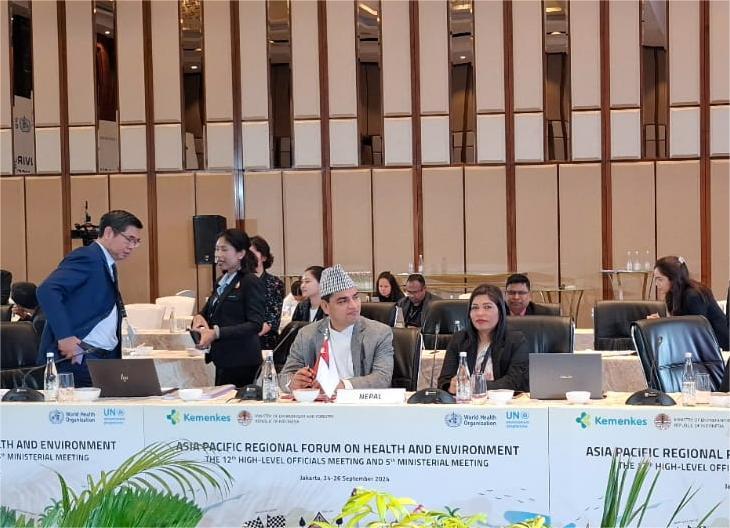Kathmandu: Health and Population Minister Pradeep Paudel highlighted that Nepal is significantly affected by climate change, urging the international community to assist in mitigating its impacts.
Despite Nepal’s minimal contribution to climate change, he noted that its citizens are severely affected, and he has been advocating for actions at both national and international levels to address these adverse effects.
Speaking at the fifth ministerial meeting for the Asia-Pacific region held in Jakarta, he mentioned that as a parliament member, he has always advocated for the establishment of a Climate Parliament in Nepal to address climate change at the policy level. Now, as Health and Population Minister, he expressed his commitment to take necessary actions to safeguard the health of current and future generations.
During the event, Minister Paudel stated that Nepal is the first country in South Asia to develop a National Health Adaptation Plan. He shared that various measures are being implemented to build a climate-resilient health system, including enhancing the capacity of healthcare professionals, strengthening research studies, and improving climate-sensitive disease surveillance systems. He emphasized that these initiatives aim to promote climate resilience and environmental sustainability within health institutions.
Recognizing the importance of climate change in the health sector, Minister Paudel mentioned that Nepal is adopting both adaptation and mitigation strategies. He highlighted the government’s commitment to use non-burn technologies for health waste management in 1,400 health institutions as part of its second Nationally Determined Contribution plan.
Recalling Nepal’s commitment to building a climate-resilient, low-carbon health system at COP26, Minister Paudel noted that the country has successfully conducted a baseline assessment of greenhouse gas emissions in the health sector.
Appreciating the provision for membership from all 51 countries and regions, Minister Paudel expressed Nepal’s interest in becoming a full member of this regional forum.
He stressed the importance of a comprehensive public awareness campaign to educate citizens about health risks related to climate change and air pollution, and suggested promoting climate health education within school curricula and community programs.
Concluding, Minister Paudel reaffirmed Nepal’s commitment to addressing health issues related to the environment, food security, livestock, and human health, and expressed full dedication to the actions outlined in the Jakarta Declaration.
